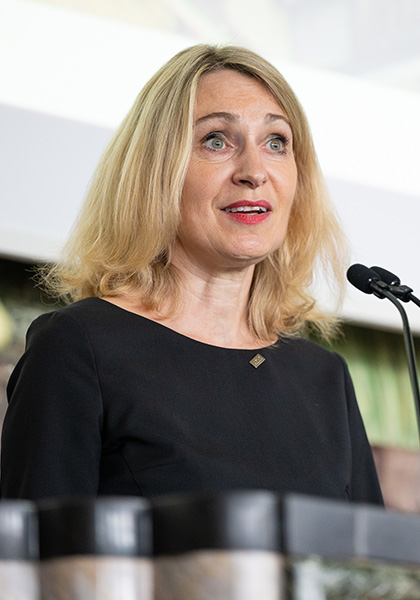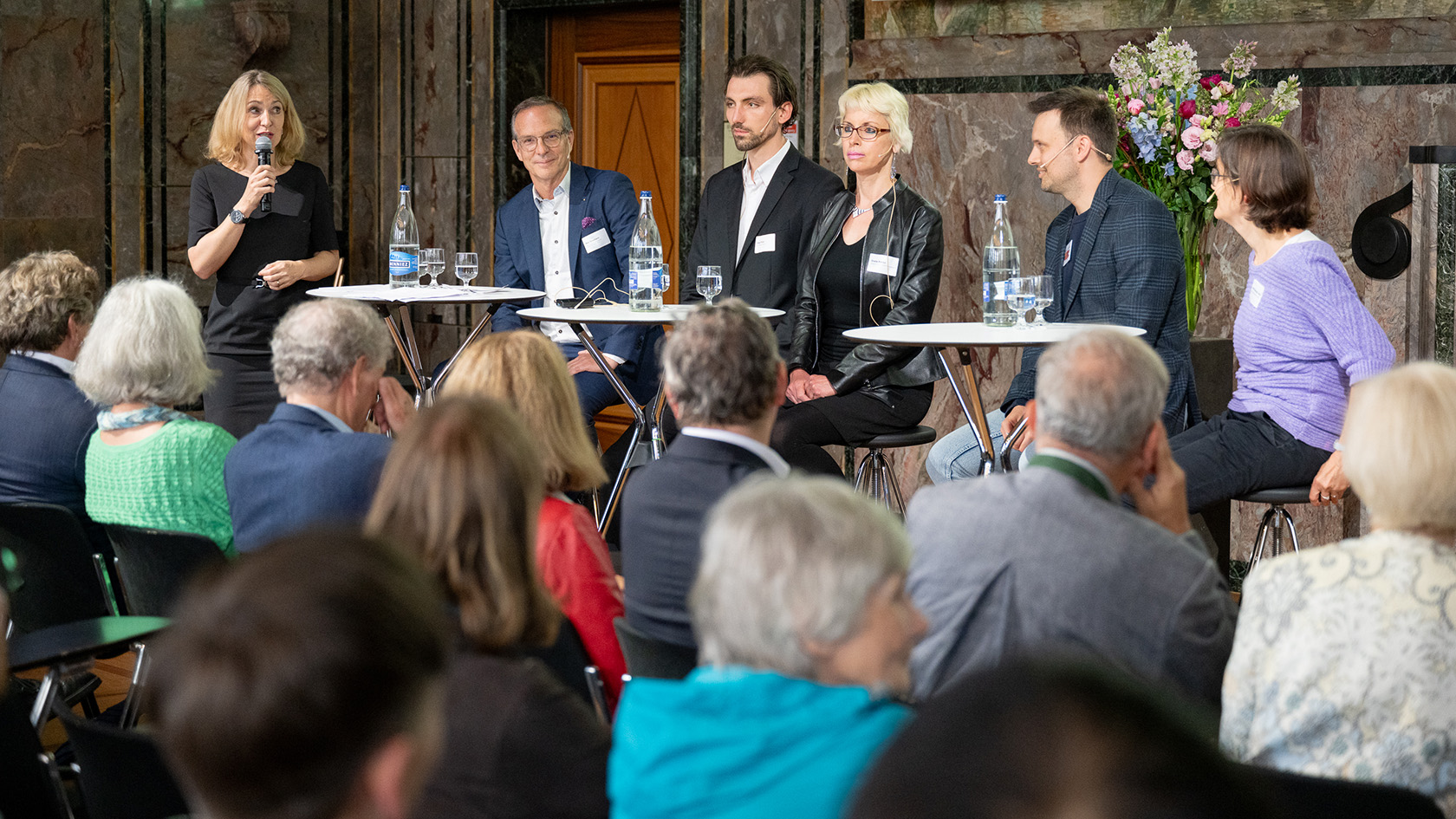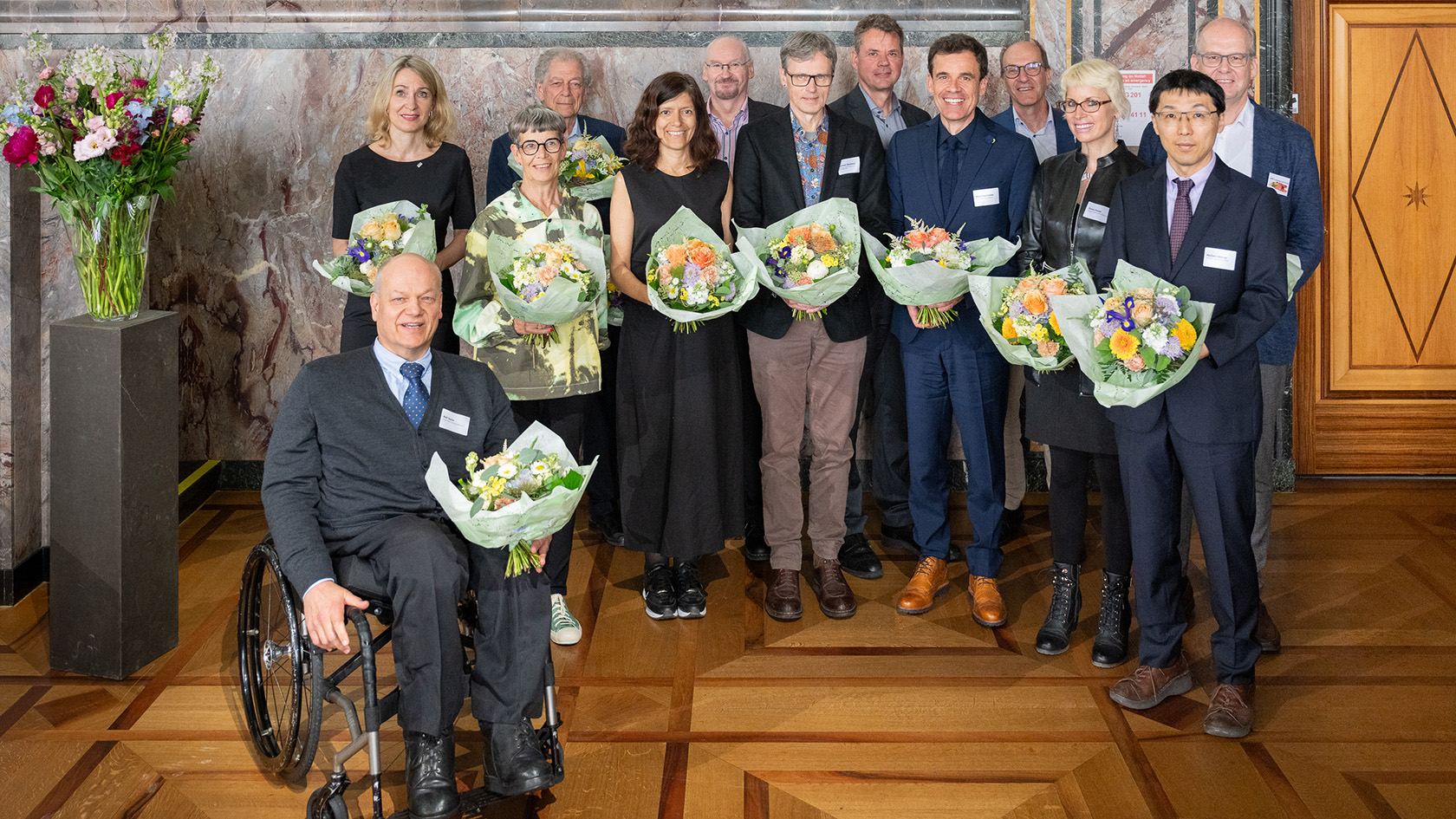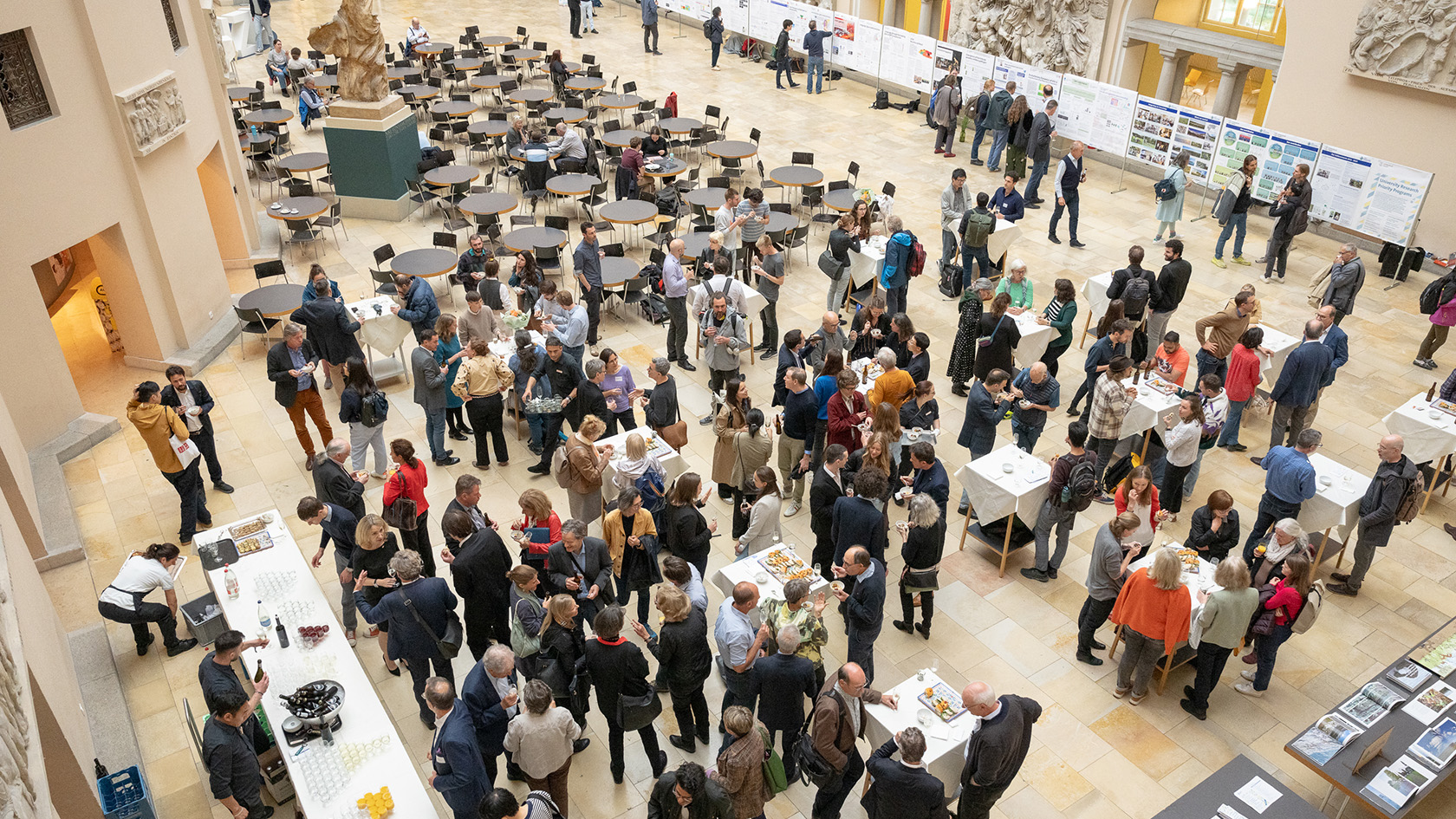Time to Take Stock and Think Ahead
The main lecture hall was packed when Vice President Elisabeth Stark stepped up to the lectern to welcome the assembled program directors and numerous researchers in the main building of UZH’s City Center campus last week. As Vice President Research, she oversees a number of cryptic-sounding acronyms, she remarked with a smile, including URPP. This particular acronym stands for University Research Priority Program. But it is far more than just a simple acronym, of course: it represents the flagship of university research at UZH: “Our URPPs are a commitment to solving socially relevant problems in strategically selected areas.” The programs bring together the full force of UZH researchers’ expertise and allow them to play to their strengths in their respective fields. According to the Vice President Research, the aim is foster to long-term visibility, an interdisciplinary approach and sustainable solutions on all levels. Pursuing such an ambitious goal requires funding, of course, and UZH spent a total of CHF 15 million each year for the various URPPs of the second series. The first series of URPP started in 2005 at the initiative of then Vice President Alexander Borbély. The second series began in 2013 and comprises eight programs that will all have concluded by the end of 2024. A third series featuring five programs started in 2021.

Our URPPs are a commitment to solving socially relevant problems in strategically selected areas.
Continuation, funding, early-career researchers
Elisabeth Stark’s opening words were followed by eight short presentations, given by the relevant directors, who gave an overview of their URPPs and shared some of the highlights. Overall, the 12-year programs have given rise to an impressive number of additional third-party funding, publications, symposia and new networks, both within and outside of Switzerland. Each of the directors emphasized the long-term and forward-looking impact their research program has had. For example, Rolf Sethe, who heads up the URPP Financial Market Regulation, talked about the research conducted in the aftermath of the 2013 financial crisis and how researchers in his program investigated how to better manage financial crises. Sethe explained that the program was successfully continued as the Center for Financial Market Regulation. Another example is the URPP Dynamics of Healthy Aging, which now lives on in form of the Healthy Longevity Center. This was made possible also thanks to funds from foundations, said the URPP’s director Mike Martin.
Supporting early-career researchers is a crucial part of the long-term and sustainable impact of interdisciplinary research programs. This was the case across all URPPs, including the creation of new professorships for some of the programs. In his presentation, Robert Weibel from the URPP Language and Space highlighted another important aspect of the programs’ research. Thanks to their interdisciplinary and cross-faculty approach, the URPPs made themselves highly visible to the general public. This fact, as well as the research groups’ leading expertise, made it easier to acquire external funding. Indeed, many URPPs were able to bring in double digits in the millions over the course of their runtime.
Interdisciplinary, communication
Academic career development and interdisciplinarity were also addressed at the closing event in an interesting panel discussion chaired by Elisabeth Stark. PhD candidate Alex Plüss of the URPP Evolution in Action and Peter Ranacher from the URPP Language and Space shared their positive experiences with the interdisciplinary, cross-faculty work conducted under the programs. This view was shared by Anna Deplazes Zemp, whose research at the URPP Global Change and Biodiversity bridges the gap between the natural sciences and the humanities. She is happy that the two fields are converging in the program’s projects. Some of the more challenging aspects of the URPPs include management and communication. On this topic, Greta Patzke, Director of the URPP LightChEC on artificial photosynthesis, said that it is a great challenge but also a great pleasure to get researchers from different disciplines to focus on a specific scientific question – which in her case was how solar light could be converted into chemical energy. She believes a great deal of communication is needed to get everybody on the same page. Max Gassmann, Director of the URPP Integrative Human Physiology in the first series, shared this view. In his program, he was keen to bring together clinical medical researchers and basic researchers, which he believes is a crucial part of any successful medical program.
Social relevance
Last week’s closing event highlighted the significance the programs have for our society. Each URPP is concerned with issues that affect us all, be it loss of biodiversity, financial crises, an aging society, language and identity, energy policy, germs and resistance, cancer treatments, or social changes. The solutions developed by the programs can be translated into practice more or less directly. Another thing they have in common is that for those involved, due to the programs’ fascinating topics, time seems to have flown by, as Greta Patzke put it. That is why it is important to look ahead and make strategic and structural considerations in good time. This is something the directors of the URPPs of the third series, presented in a short video at the end of the event, now have to tackle.



